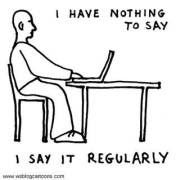 Students, please complete the following in the comments section. Replace the red with information about your SSR book.
Students, please complete the following in the comments section. Replace the red with information about your SSR book.I am reading Soldier's Heart written by Gary Paulsen . I have 65 pages before I finish my book. It will take me 4 days to finish.
The best thing about this book is ...
The best thing about this book is how it brought me into it. I feel like I am Charley. When he faces the enemy in battle for the first time, I felt myself tighten up with the anticipation of what was ahead. When the battle is over, and Charley must face his shame, I felt defeated and sad. Paulsen took me through all of the feelings, just as Charley experiences them. In every step of Charley's journey, I could picture myself, in his place, living his life.

























